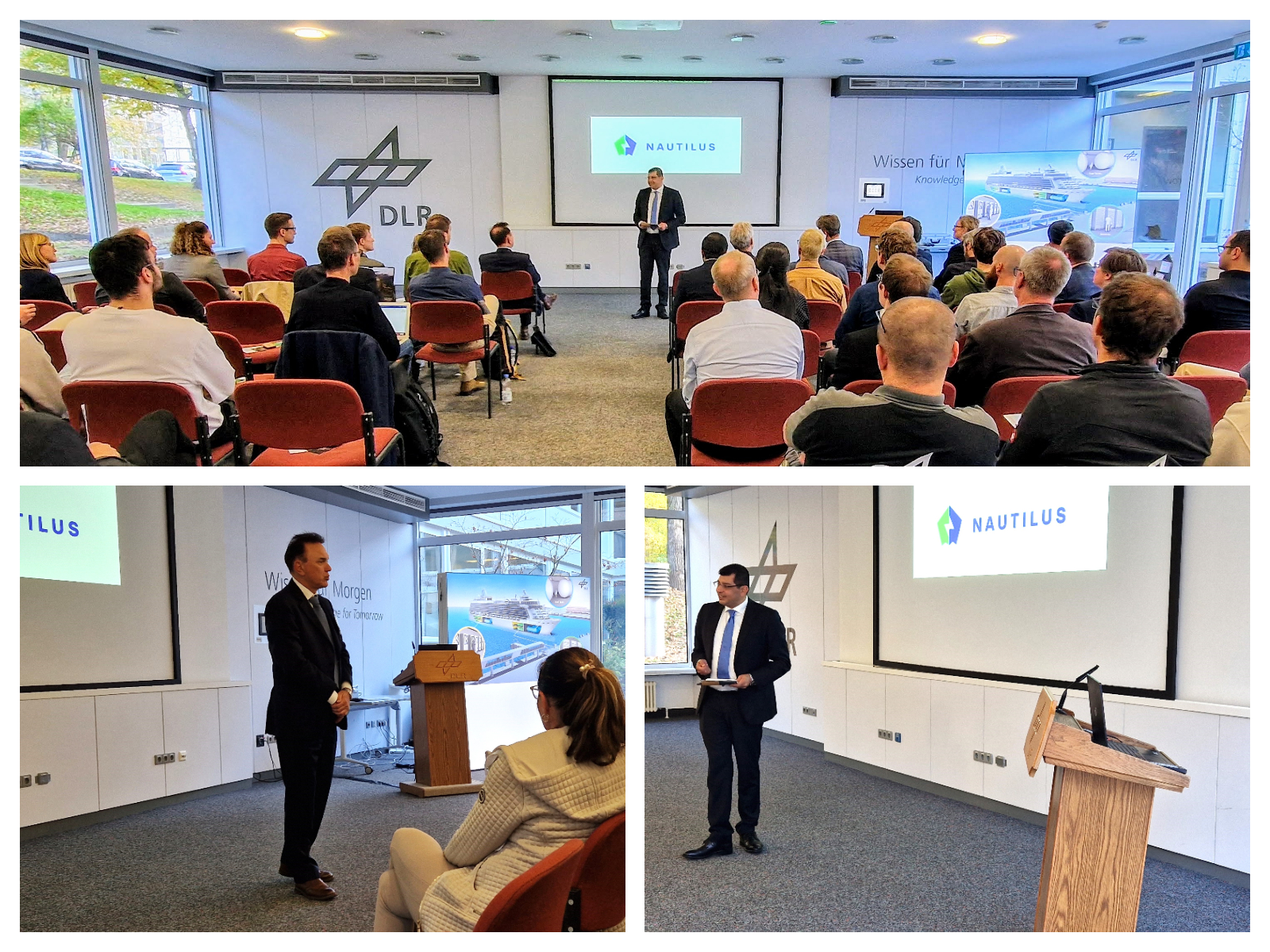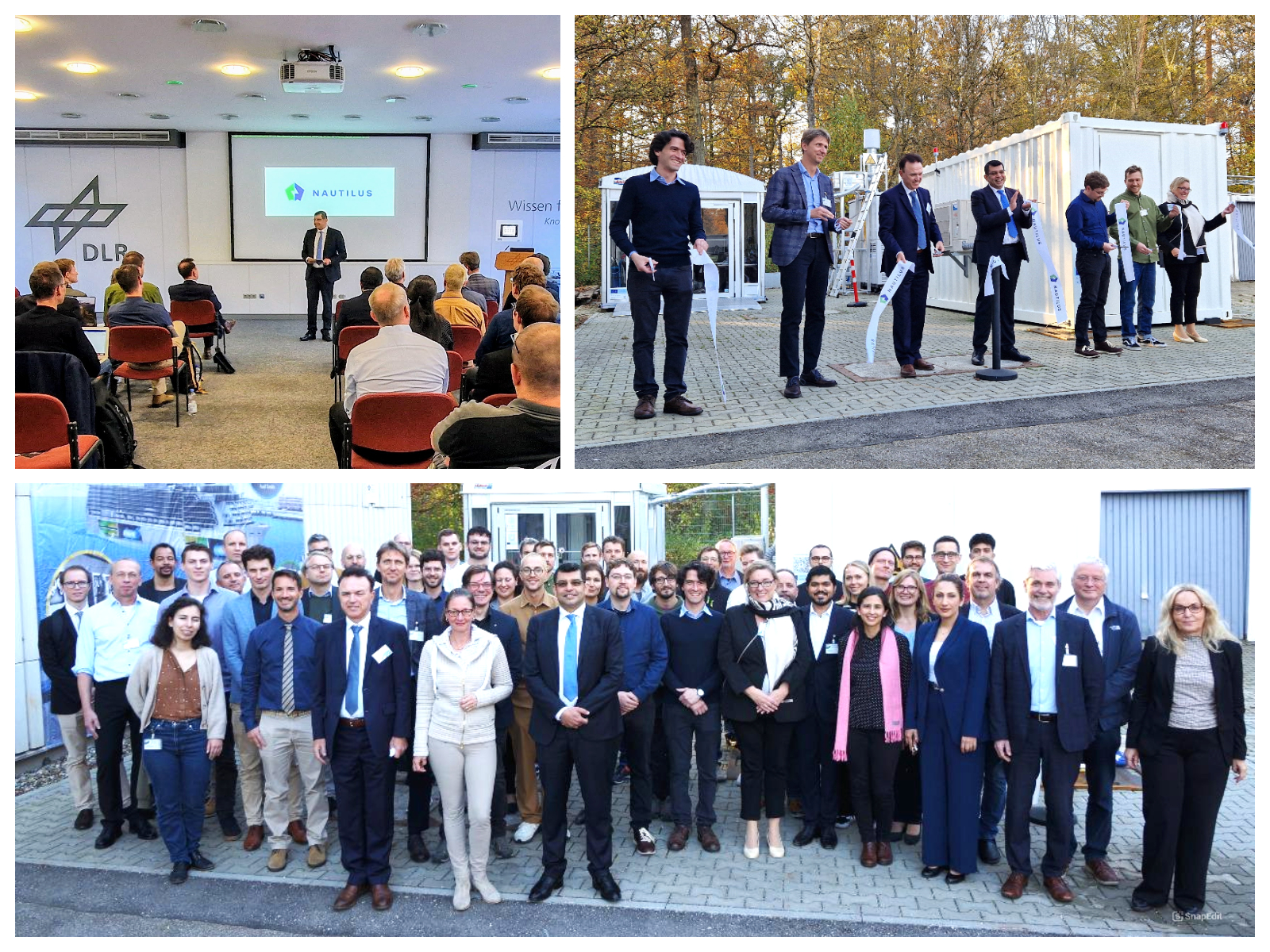On Tuesday, October 29, the operation of the NAUTILUS Genset demonstrator was launched at DLR Stuttgart, Germany.
The NAUTILUS Genset is a groundbreaking maritime power system developed for long-haul passenger ships, combining SOFC fuel cells and battery technology for marine applications. The goal of the project, funded by the European Union’s Horizon 2020 research and innovation program and coordinated by the German Aerospace Center (DLR), Institute of Engineering Thermodynamics, was to validate the concept that the gradual replacement of traditional internal combustion engines with advanced electrochemical processes that would enable a reduction of GHG emissions by 50% and the elimination of other harmful exhaust emissions. The SOFC-battery hybrid genset is a promising solution with the potential to reduce CO₂ emissions in shipping by over 50% and non-CO₂ emissions by more than 90%.
The launch of the Genset demonstrator marked a key achievement of the NAUTILUS project. The technological setup and operation are currently being tested under various load scenarios at DLR Stuttgart,while preliminary findings on the emission reduction potential are being verified during different operating modes of the Genset demonstrator.
The NAUTILUS Genset launch began with a warm welcome address by Dr. Syed Asif Ansar, Head of the Department of Energy System Integration at DLR’s Institute of Engineering Thermodynamics and coordinator of the NAUTILUS project, alongside Professor Dr. André Thess, Director of the Institute of Engineering Thermodynamics at the German Aerospace Center (DLR). Following the welcome, the NAUTILUS project coordinator guided attendees through the concept of the novel maritime energy system and summarized the main project steps and achievements leading up to the Genset demonstrator launch.
 Figure 1: Dr Syed Asif Ansar, Head of the Department of Energy System Integration at DLR’s Institute of Engineering Thermodynamics and coordinator of the NAUTILUS project, (upper and bottom right images) Professor Dr André Thess, Director of the Institute of Engineering Thermodynamics (bottom left image)
Figure 1: Dr Syed Asif Ansar, Head of the Department of Energy System Integration at DLR’s Institute of Engineering Thermodynamics and coordinator of the NAUTILUS project, (upper and bottom right images) Professor Dr André Thess, Director of the Institute of Engineering Thermodynamics (bottom left image)
In a subsequent presentation by Dr Steffen Knodt, a board member of the German Association for Marine Technology (GMT) and a member of the German Committee for the UN Ocean Decade of Science for Sustainable Development, broader issues regarding environmental protection of the oceans and climate change were discussed.

Figure 2: Dr Steffen Knodt, a board member of the German Association for Marine Technology (GMT) and a member of the German Committee for the UN Ocean Decade of Science for Sustainable Development (left), and Massimo Bertoldi, chief of technology development at SolydEra (right)
The SOFC for marine energy system applications used in the NAUTILUS project was the core focus of the presentation delivered by Massimo Bertoldi, chief of technology development at SolydEra, a project partner that supplied the 60 kWe SOFC system for the Genset demonstrator.
Following the speeches, a coffee break provided an opportunity to network and discuss the posters displayed in the Coffee Area. The posters focused on key components of the NAUTILUS Genset demonstrator, including:
- Solid Oxide Fuel Cell System as a part of the Genset Demonstrator (SolydEra) [Download the poster]
- Battery & Main Controller Container as Part of the Genset Demonstrator (MAN Energy Solutions) [Download the poster]
- Development and Validation of a Control Unit for Efficient Power Distribution (RWTH Aachen University) [Download the poster]
- Emission Analysis of Solid Oxide Fuel Cell System in the Genset Demonstrator (Lund University) [Download the poster]
- Integration and operation of Modularised Functional Genset Demonstrator (German Aerospace Center, DLR) [Download the poster]

Figure 3: Poster area and conference hall
The highlight of the day came in the late afternoon, beginning with a ribbon-cutting ceremony followed by the official launch of the NAUTILUS Genset Demonstrator at the demonstration site. The event concluded by lively discussions at the demonstration site, marking the successful debut of this innovative maritime power solution.

Figure 4: Demonstration site and the opening ceremony on October 29, 2024

Figure 5: The NAUTILUS Genset launch ceremony
The Genset launch marked the culmination of more than four years of intensive collaboration and expertise sharing among 15 NAUTILUS consortium partners. The project is nearing its conclusion at the end of 2024, but before it concludes, there are still important findings to come regarding emission measurements and health impact analysis.
This project has received funding from the European Union’s Horizon 2020 research and innovation program under grant agreement No 861647.
Stay in touch with us!
#NAUTILUS_2020 #propulsionsystem #sustainableshipping #battery #fuelcell #cruiseships
***
⇒ Follow us on Twitter/LinkedIn to be on board.
Follow #NAUTILUS_2020
NAUTILUS is a short for Nautical Integrated Hybrid Energy System for Long-haul Cruise Ships.

This project has received funding from the European Union’s Horizon 2020 research and innovation program under grant agreement No 861647.

